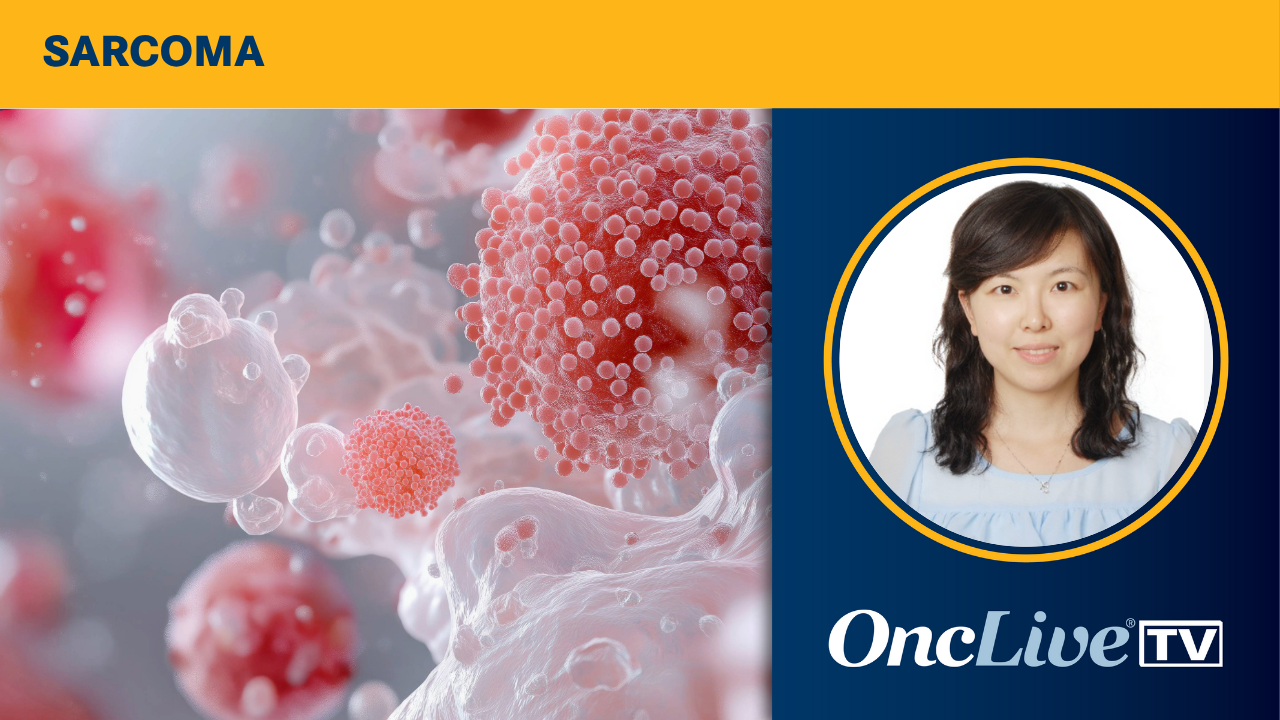Health
Peking University Trials New Therapy for Relapsed Sarcomas

A new phase 2 clinical trial, known as the ARTEMIS-002 study, is underway to evaluate the effectiveness of the B7-H3–targeted antibody-drug conjugate (ADC) HS-20093 in patients suffering from relapsed or refractory sarcomas. Dr. Lu Xie, a medical oncologist at Peking University People’s Hospital, shared insights on the trial’s design and objectives, marking a significant advancement in treatment options for this challenging patient population.
The ARTEMIS-002 trial (NCT05830123) is an open-label, multicohort study that builds upon the promising results of the earlier phase 1 ARTEMIS-001 trial (NCT05276609). In that study, objective responses to HS-20093 were noted across various sarcoma subtypes, including osteosarcoma, at doses of 8 mg/kg and 12 mg/kg, while maintaining acceptable tolerability.
In cohort 1 of the ARTEMIS-002 trial, patients with relapsed or refractory osteosarcoma are being enrolled to evaluate the optimal dosing strategy. This cohort aims to directly compare the efficacy and tolerability of the two dose levels: 8 mg/kg and 12 mg/kg. Early observations from ARTEMIS-001 indicated a stronger clinical activity at the higher dose, although both doses displayed comparable safety profiles.
To further substantiate these early findings, cohort 1 was expanded by an additional ten patients, creating cohort 3, which will assess efficacy, duration of response, and dose-related toxicities associated with HS-20093. Meanwhile, cohort 2 focuses on adult patients suffering from other relapsed or refractory sarcoma subtypes, excluding osteosarcoma, and evaluates HS-20093 at the recommended phase 2 dose (RP2D) of 12 mg/kg.
The primary goals of the ARTEMIS-002 study are to assess the objective response rate and safety across a broader sarcoma population, while also validating the RP2D established in prior clinical work. Following the evaluations of cohorts 1 and 2, the trial design has been refined to include cohort 3, which specifically targets adolescent and young adult patients with osteosarcoma. Dr. Xie noted that this demographic is particularly important, as osteosarcoma primarily affects younger individuals.
The inclusion of this age group aims to explore the immunogenicity and pharmacokinetic profile of HS-20093 in younger patients. Dr. Xie emphasized that the trial is structured to comprehensively define the efficacy, safety, and optimal dosing of HS-20093 across both adult and adolescent populations.
The ARTEMIS-002 study is expected to provide critical insights that will guide future late-phase development and enhance the understanding of B7-H3–directed ADC therapy as a viable treatment strategy for patients grappling with relapsed or refractory sarcomas. As the trial progresses, it holds the potential to significantly impact treatment protocols and improve clinical outcomes in this challenging landscape.
-

 Science2 weeks ago
Science2 weeks agoInventor Achieves Breakthrough with 2 Billion FPS Laser Video
-

 Top Stories2 weeks ago
Top Stories2 weeks agoCharlie Sheen’s New Romance: ‘Glowing’ with Younger Partner
-

 Entertainment2 weeks ago
Entertainment2 weeks agoDua Lipa Aces GCSE Spanish, Sparks Super Bowl Buzz with Fans
-

 Business2 weeks ago
Business2 weeks agoTyler Technologies Set to Reveal Q3 Earnings on October 22
-

 World2 weeks ago
World2 weeks agoR&B Icon D’Angelo Dies at 51, Leaving Lasting Legacy
-

 Health2 weeks ago
Health2 weeks agoNorth Carolina’s Biotech Boom: Billions in New Investments
-

 Entertainment2 weeks ago
Entertainment2 weeks agoMother Fights to Reunite with Children After Kidnapping in New Drama
-

 Science2 weeks ago
Science2 weeks agoNorth Carolina’s Biotech Boom: Billions Invested in Manufacturing
-

 Health2 weeks ago
Health2 weeks agoCurium Group, PeptiDream, and PDRadiopharma Launch Key Cancer Trial
-

 Entertainment2 weeks ago
Entertainment2 weeks agoRed Sox’s Bregman to Become Free Agent; Tigers Commit to Skubal
-

 Top Stories2 weeks ago
Top Stories2 weeks agoDisney+ Launches Chilling Classic ‘Something Wicked’ Just in Time for October
-

 Health2 weeks ago
Health2 weeks agoCommunity Unites for 7th Annual Into the Light Walk for Mental Health









